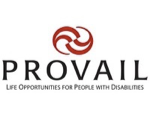 In part 1 of this blog post series, we gave an overview of the Salesforce supported employment solution we built with PROVAIL. In this post, we dive into the details on how Employment Counselors use the system. In part 3, we share how Billing Managers use the system to efficiently run the billing process.
In part 1 of this blog post series, we gave an overview of the Salesforce supported employment solution we built with PROVAIL. In this post, we dive into the details on how Employment Counselors use the system. In part 3, we share how Billing Managers use the system to efficiently run the billing process.
Employment Counselors (ECs) work one-on-one with participants to place them in jobs, provide on-the-job training and support, and help them progress their career. Their work is funded by multiple county programs. Each program allocates monthly hours for working with a participant. To get reimbursement from the funding programs, ECs are required to do detailed tracking of their work with clients. To track client outcomes, ECs create a service plan for each participant. Each service plan is made up of specific goals with associated action steps.
Let’s review some of the ways Employment Counselors use Salesforce in their daily work.
Review Caseload
ECs start their day by viewing a personalized dashboard that provides an overview of their caseload, including case notes so far this month and a list of the participants they are working with.
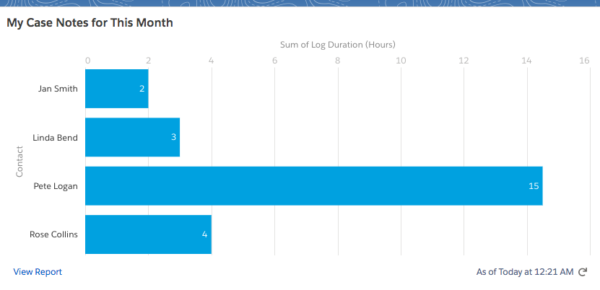
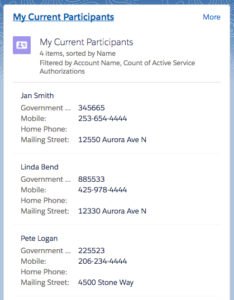
The EC can then focus on a particular participant. The Contact page is designed to provide allow them to see key information at a glance, including recent case notes and key contact information.

The right hand sidebar/panel provides a handy progress bar of hours used against authorized hours for each program the participant is enrolled in.
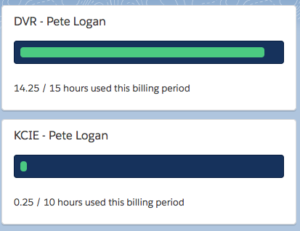
Targets can also be set for Milestone Service Authorizations (where PROVAIL gets paid for reaching certain outcomes instead of paid for the number of service hours provided). Being able to set a target and track that helps ECs have a better sense of how much time they’ve put into a plan to see how efficient they’ve been.
Logging time and case notes
ECs provide many different services while working to help participants achieve their service plan goals. These services include job development, interview assistance, assessments in the community (a job preview), goal setting, on the job training, and ongoing job coaching. With one click from the participant page, ECs can track their time spent on this work in case notes:

The billing requirements around case notes are complicated. To make supporting these requirements easy for EC case note entry and updating, we built a custom Lightning Component with many nested components. The key features of the page include:
- Funding program
- Service type (different programs have different service types, so the options dynamically update based on the selected program)
- Case notes
- Hours – EC and participant
- Track work against an action step that’s part of a service plan goal
Mobile
And of course, ECs are often out on job sites with participants, not behind their desks, so we made sure that the case note Lightning Component translated well to mobile. This includes voice entry of the notes. Here are some of the key screens ECs use in the field on the Salesforce mobile app:
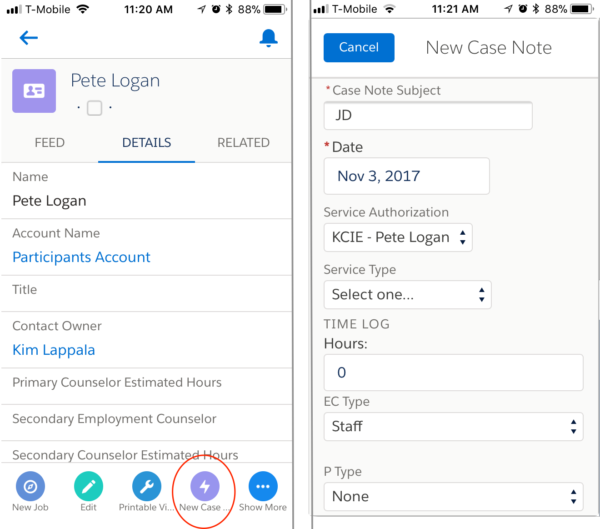
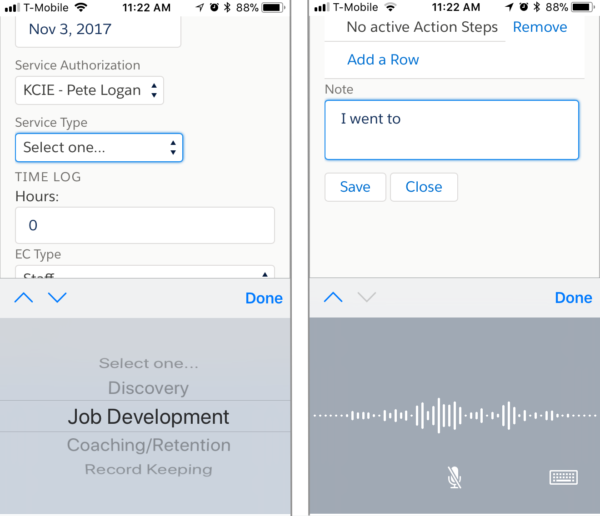
Job development and team metrics
In addition to the above, the system helps in other ways, including:
- ECs can see what the most recent activity has been at a particular business so they can see if they can go into that business for Job Development. This improves collaboration and prevents them from stepping on another EC’s toes.
- Employment teams at PROVAIL can see how their team is doing on goals around number of new job starts, retention rates for those new jobs, and hours and wage increases.
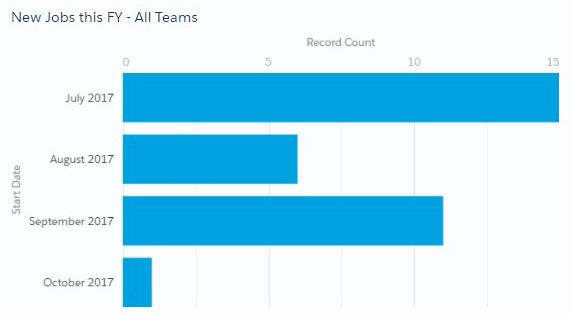
Those are the highlights for Employment Consultants. In part 3 of this blog series, we dive into how the system works for PROVAIL’s billing process.